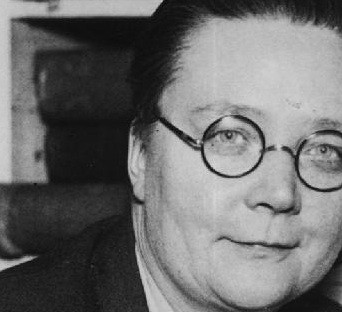Here is the question for today – Do you read books by or about women? Intentionally?

This is the third and last in a series of posts centered around a short volume Are Women Human? containing two essays by Dorothy Sayers. Today I am going to give a couple of quotes from Sayers’ essays, make an observation, a suggestion, and open a conversation.
From the essay “The Human-Not-Quite-Human” (page numbers from the 1981 printing of “Are Women Human?”)
The
first task, when undertaking the study of any phenomenon, is to observe
its most obvious feature; and it is here that most students fail. It is
here that most students of “The Woman Question” have failed, and the
Church more lamentably than most, and with less excuse. That is why it
is necessary, from time to time, to speak plainly, and perhaps even
brutally, to the Church.
The first
thing that strikes the careless observer is that women are unlike men.
… But the fundamental thing is that women are more like men than anything else in the world. They are human beings. Vir is male and Femina is female: but Homo is male and female.
This is the equality that is claimed
and the fact that is persistently evaded and denied. No matter what
arguments are used, the discussion is vitiated from the start, because
Man is always dealt with as both Homo and Vir, but woman as only Femina. (p. 37)
Here is another quote from the essay “Are Women Human?“
A man once asked me – it is true that it was at the end of a very good dinner, and the compliment conveyed may have been due to that circumstance – how I managed in my books to write such natural conversation between men when they were by themselves. Was I, by any chance, a member of a large mixed family with a lot of male friends? I replied that, on the contrary, I was an only child and had practically never seen or spoken to any children of my own age until I was about twenty-five. “Well,” said the man, “I shouldn’t have expected a woman [meaning me] to have been able to make it so convincing.” I replied that I had coped with this difficulty by making my men talk, as far as possible, like ordinary human beings. This seemed to surprise the other speaker; he said no more, but took it away to chew it over. One of these days it may quite likely occur to him that women, as well as men, when left to themselves, talk very much like human beings also. (p. 35)
These two quotes combine to make a point that I would like to consider today. I think that there is a bit more to the situation than Sayers admitted in the above quote – while she did not interact much with men, she was well educated – and education leads to a knowledge of how humans talk. We live in a time and culture where it is impossible for an educated woman to avoid “putting her head” in a man’s point of view. The vast majority of literature, both fiction and non-fiction is written by men from a (supposedly) male perspective. A man, on the other hand, can avoid “putting his head” in a woman’s point of view. And this is especially true of boys. Girls will often read Tom Sawyer and The Great Brain, boys will less often read Anne of Green Gables and Little House on the Praire. One of the consequences of this is that women (consciously or not) will realize that we are human then male and female – while men quite often do not.
If male – how often do you read a book with a woman as protagonist, or a memoir by a woman? If you don’t read such material – why not?
If female – how often do you read a book by/about a man or boy? What percentage? If you don’t why not?
Consider an example. I read Donald Miller’s Blue Like Jazz last week. I put my head into his – so far as he allowed in the memoir. It is obvious in this book that there are aspects to his experience that are male (less than he likely thinks), aspects that are human, aspects that are generational, and aspects that are a consequence of his unique blend of individual human characteristics and experiences. I found his reflections fascinating – all of them, not just those that gelled with my experience.
Now a question, a suggestion and a question. How many pastors think that part of their role as pastor requires learning how to “put their head” into the context of others (including, but not limited to, women)? I will suggest that part of the preparation for a good pastor is to learn how to do this and to do it intentionally. A good approach is to read widely, especially good fiction, but also memoirs. Intentionally make your reading diverse. Don’t judge, just enter in. Another approach is to simply talk with a broad range of people of both genders and many different life experiences. But I don’t think that this latter option is quite as effective, as it doesn’t lead to the same level of immersion into the experience of another. It is only when we intentionally put our heads into the context of others that we really realize how true it is that we are human first – and how similar and diverse the human experience actually is.
We can broaden the question I asked above beyond gender to other life situations as well.
How much of your reading or life experience requires you to “put your head” in the mind of another – one substantially different from you? Is this good or bad? What consequence does it have for the church?
If you wish to contact me directly you may do so at rjs4mail [at] att.net.

